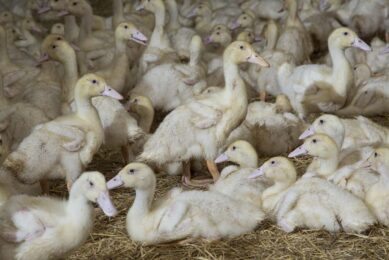Controversial bird flu report released

Following a six month delay, a controversial paper has been published in the journal Science describing a virulent, man-made form of bird flu. The findings suggest that we may be closer than we thought to a potentially deadly influenza pandemic.
Science released in their entirety the details of a series of experiments conducted by virologist Ron Fouchier and his colleagues at Erasmus University Medical Center in the Netherlands, in which they genetically engineered the H5N1 bird flu virus and made it jump easily from host to host.
The research, along with another paper submitted to Nature by scientists led by Yoshihiro Kawaoka at the University of Wisconsin-Madison who also created an airborne strain of H5N1, was initially suppressed in December by a US government biosecurity group over concerns that the experiments could pose a bioterror risk. The National Science Advisory Board for Biosecurity (NSABB) asked the publications to strip the reports of their detailed methods, or withhold them altogether, sparking an intense dispute within the scientific community.
The release of Fouchier’s paper marks the end of months of bitter debate over the risks of government censorship on science versus those of bioterrorists getting their hands on the recipe for deadly flu. Fouchier’s intent was to further researchers’ understanding of how flu viruses work — how they adapt to new hosts and how they learn to hop from person to person. H5N1 spreads easily among birds, but it rarely transmits from one person to another, mainly because it isn’t airborne.
When it does infect human beings, however, it’s often deadly: of the 606 cases of human H5N1 infection confirmed by the World Health Organization since 2003, nearly 60% have resulted in death. If the virus were to mutate and go airborne — flying from person to person through sneezes and coughs — it could trigger a potentially deadly pandemic. So, Fouchier wanted to know what it would take to make that happen and, by publishing his work, enable scientists to stay one step ahead of the virus by better predicting and preparing for a potential pandemic.
Source: Time
Join 31,000+ subscribers
Subscribe to our newsletter to stay updated about all the need-to-know content in the poultry sector, three times a week. Beheer
Beheer








 WP Admin
WP Admin  Bewerk bericht
Bewerk bericht